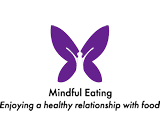Improve Your Relationship With Food For Better Eating Habits
 Uncovering The Root Of The Habit
Uncovering The Root Of The Habit
We have to consider both conscious and subconscious motivations, drives and needs in order to understand why a behaviour might have become an unhelpful, compulsive habit. General mental health and well-being is intimately linked to eating habits. Improving your relationship with food requires becoming more self-aware in terms of unhelpful and deeply ingrained thoughts, beliefs, attitudes and behaviours around food, nutrition and dieting (such as believing you must always clear your plate, or avoiding any high fat food), acknowledging the different types of eating you might do on a regular basis such as reward eating, stress eating, boredom eating or secret eating, whilst addressing mindless eating and managing the food environment (food cues).
It’s So Easy To Eat On Autopilot
Eating is such a routine behaviour that it can be done with little or no thought. The brain is very good at operating on ‘autopilot’, and the great thing about habits is that when we don’t have to think too much about things it enables the brain to save energy for more challenging tasks, and it also helps us to multi-task. However, some habits are helpful and others are less helpful- we could call them ‘positive autopilots’ and ‘negative autopilots’. Positive autopilots include driving a car or cleaning our teeth, and examples of negative autopilots are mindlessly scrolling on our phones, or eating large quantities of snack foods whilst watching TV and not really noticing or savouring the taste.
It’s very easy to eat on autopilot particularly when you’re distracted by something else, such as TV eating, chatting at a dinner party or eating lunch whilst working. If your mind is focused on other things or you’re in a hurry it’s very easy not to notice what or how much you’re eating. Some people ‘graze’ throughout the day and pop food in their mouth without barely noticing. The manner in which you eat can really influence your enjoyment of food, as well as how much you eat.
Mindful Eating Versus Mindless Eating
Mindless eating is eating with little awareness and thought, and can result in overeating- it may not even be that enjoyable if we’re not savouring the taste. Eating mindlessly on a regular basis can lead to weight gain and various health problems, especially if the foods provide little nutrition, such as ultra-processed food.
10 Mindless Eating Behaviours
 1. ‘Hoovering up’ any food in front of you, including other people’s leftovers
1. ‘Hoovering up’ any food in front of you, including other people’s leftovers
2. Not planning your meals and snacks- just grabbing the same old foods with little thought
3. Clearing your plate despite feeling stuffed
4. Eating foods from large packets without thinking about how much of the packet you’re eating
5. Overdoing it on the food just because you’re at a social event and you’re faced with lots of choice
6. Eating foods that don’t satisfy your appetite- they taste good, but cause you to feel hungry soon afterwards, leading to more eating
7. Eating with lots of distractions and very quickly, so you barely notice what and how much you’ve eaten
8. Automatically going for a second helping at dinner time or three courses in a restaurant, not just one or two
9. Making a beeline for food as soon as you feel stressed, upset, bored or lonely
10. Not comparing food labels to make a more helpful choice, just going for what looks nice or is the cheapest.
Engaging The Thinking Brain
In contrast, mindful eating is about being present with the food in front of you, enjoying and appreciating it, and eating in accordance with your body’s needs. The brain is engaged, and you’re checking in before and during eating, deciding whether to eat, what to eat and how much to eat, and stopping when you’ve had enough. Mindful eating is also about flexibility, and giving yourself permission to eat foods you enjoy as part of a balanced diet rather than trying to avoid ‘bad’ foods- it has to be realistic and enjoyable, otherwise if you don’t allow yourself foods you love you can end up craving them.
Mindful eating isn’t about striving for perfect eating, but a realistic, sustainable, ‘middle-way’ approach to food, and a personalised way of eating that takes into account your own particular preferences, needs, skills and lifestyle. You can read about some of the principles of mindful eating, and my blog post ‘How To Eat More Mindfully’ offers lots of tips.
Whilst mindful eating is about paying attention to what’s going on, getting curious, and noticing what, how, and why you eat (non-judgementally), it’s not just about trying to modify unhelpful behaviours but considering the root causes and drives too (mindset). Read my blog post: ‘How To Improve Your Eating Habits With A Stressful Life’.
Different Types Of Eating
 Food and feelings can become tightly intertwined- how and what a person eats can reflect what’s going on for them emotionally, so becoming aware of non-hunger eating and how often they’re doing it is a key part of understanding a person’s relationship with food. You can read my blog post: ‘The Difference Between Hunger And Cravings’. Whilst overeating (and weight gain) is often a result of mindless eating habits, it can be a symptom of something. Just like a physical symptom, we need to diagnose and treat what’s causing the symptom (such as emotional eating). There’s usually some struggle, inner conflict or fear going on, or unmet need to address.
Food and feelings can become tightly intertwined- how and what a person eats can reflect what’s going on for them emotionally, so becoming aware of non-hunger eating and how often they’re doing it is a key part of understanding a person’s relationship with food. You can read my blog post: ‘The Difference Between Hunger And Cravings’. Whilst overeating (and weight gain) is often a result of mindless eating habits, it can be a symptom of something. Just like a physical symptom, we need to diagnose and treat what’s causing the symptom (such as emotional eating). There’s usually some struggle, inner conflict or fear going on, or unmet need to address.
We talk about ‘food issues’ or ‘weight issues’, but it’s not food itself or weight that’s the problem but issues such as anxiety, guilt, self-loathing, escape-seeking, approval-seeking, a need for a break, procrastination, avoidance, boredom, frustration, a need for a dopamine hit, rebelliousness, stress, loneliness, anger, resentment, depression, sadness or lack of fulfilment. Here are examples of different types of eating that a person may or may not be aware they’re doing:-
- Reward eating (common in the evenings) or relaxation eating (eg “I’m exhausted from high functioning all day, so all I want to do is eat”)
- Opportunistic eating (eg being alone; secret eating) / ‘eating because I can’ eating (eating for the sake of it)
- Loneliness eating
- Alone eating (partner is away or out for the evening, nobody is around to judge you)
- Fear of hunger eating (eg fear of fainting (low blood sugar) or fear of going without food- could relate to a childhood experience)
- Boredom eating (or seeking pleasure or a ‘hit’ due to lack of mental stimulation)
- ‘Blown it’ eating (I’ve just eaten a piece of cake so I’ve ruined my diet, so I might as well carry on eating)
- Comfort eating (or self-soothing): eating can have a calming, relaxing effect, or make us feel temporarily detached from the world (eg “Eating feels like doing something kind”; “Eating is me-time- it’s moments when nobody expects anything of me”)
- Self-punishment eating (eg because of something that’s happened, or following negative self-talk)
- Rebellious eating (eg in response to a comment “Should you be eating that?” or in defiance of food restriction/rules)
- Avoidance eating (eg eating instead of talking, if fear of confrontation or difficulty expressing feelings); or ‘anger’ eating (“I eat instead of expressing my annoyance”)
- ‘Numbing out’ eating (eg “I eat to suspend my thoughts”- client had a strong inner critic)- this can also be dissociation (detaching oneself from your internal or external experience)
- Tiredness eating (or if feeling generally low, to boost serotonin or blood sugar levels)- though eating sugar doesn’t really relieve tiredness
- Stress eating or ‘overwhelm’ eating (cortisol can increase appetite, or we may feel the urge to re-fuel during a busy day)
- Procrastination eating (person can’t be bothered to do X, so walks to the fridge)
- Celebration or social eating.
Building Self-Awareness: External Food Cues
When it comes to habit change, awareness is key. Perhaps you eat when you’re not hungry and have a tendency to eat ‘with your eyes’ so that you end up eating any food that looks good, or you have a compulsion to eat food because it’s within reach, or because others are eating (FOMO). We can take charge of the food environment by being aware of the power of external cues such as the sight, smell and proximity of food, food marketing, and the brain’s reward centres (dopamine) which drive us to eat, and coming up with strategies.
Once we’re aware of any unhelpful habits we have, we can start creating new ones- even just small changes can make a big difference to overall calorie consumption. For example, putting some snack food into a bowl and remove the large packet to the kitchen cupboard, instead of keeping the packet of food by your side whilst watching TV; or slowing down when eating, or serving yourself smaller portions.
Addressing Excuses To Eat
Learning to eat mindfully therefore includes becoming aware of underlying motivations to eat, as well as any excuses often used to justify eating. Examples include ‘I can’t let it go to waste’, ‘You have to completely indulge when you go out for a meal’, ‘Now the packet’s open I might as well eat the lot’, ‘Food is my crutch when I’m stressed’, ‘I blew it at lunch so I might as well write off the rest of the day’ or ‘I’m not going to miss out if everyone else is having dessert’.
 Unhappy Mind, Unhappy Eating: Emotional Eating Triggers
Unhappy Mind, Unhappy Eating: Emotional Eating Triggers
Many people describe themselves as emotional eaters or ‘comfort’ eaters, perhaps soothing themselves with food when they’re bored, stressed, angry, sad, anxious, lonely, unfulfilled, or tired. When you give yourself the opportunity to reflect on your relationship with food, and what food symbolises for you, you can start understanding the root cause of your eating habits and any particular emotional triggers. You can read more about emotional eating.
Planning
Some people find planning and organisation a lot easier than others, but we can all find ways to be prepared in advance of upcoming meals and snacks. Setting intentions in advance can help you to feel more in charge of your next meal, providing you with some clarity and structure for making healthier, more satisfying food choices rather than more spontaneous, less healthy food choices you might regret or not particularly enjoy. Thinking about what you’re going to eat beforehand can help you to prepare for temptations as they arise- if you know in advance roughly what you plan to eat and plan to avoid, you’ll be in a stronger position to make better food choices. Thinking ahead can really help to cultivate intentional, rather than impulsive, eating.
Be Curious And Self-Compassionate
Get curious about your eating. If you’re aware of how and why you eat, you’ll have a much better chance of making positive, sustainable changes. As well as building self-awareness, your foundation stone has to be self-compassion, especially if you have a strong inner critic. Self-compassion is easier to adopt when you have better understanding of yourself- feeling guilty or beating yourself up only holds you back, so embrace your new journey with compassionate curiosity and hope.
My Services
One-to-Ones: SPECIAL OFFER (ongoing): buy four sessions up front and get the 4th HALF PRICE (£30). Contact me via email.
Webinar: ‘How To Eat Normally And Lose Weight Without Dieting’.
Purchase tickets for any of my events via Eventbrite.
Follow me on Facebook or Instagram. For additional information and tips see my blogs.



